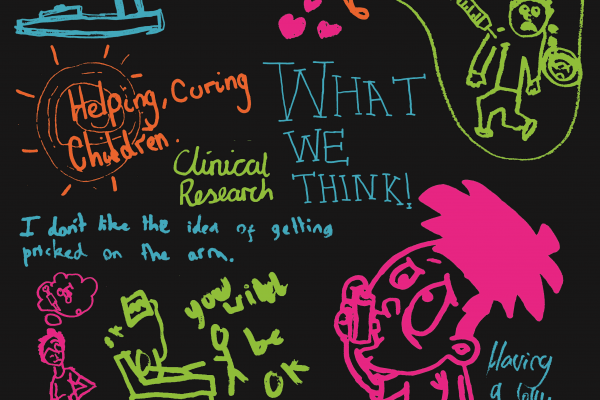Children and clinical research: ethical issues
Report
Published 14/05/2015
Inviting children and young people to take part in research
Communication and information
Children and young people need clear information about the research before they can decide if they want to take part. Good communication and good relationships with researchers are very important.
...a researcher who gives you a lot of information, gives you constant updates and asks you how you feel frequently, because you might ... not feel confident to bring a point up but if they ask you then you'll feel better talking about something."
Explaining research clearly to children and young people
Researchers need to make sure that they explain about the research in a way that is easy to understand – for example with information leaflets, games, videos, social networking sites or apps.

Just to be quite genuine, and just like, not sticking to a script...just chatting to you nice, not push you into anything, give you all the details. Like I said - don't overwhelm you just when they're coming to you and asking you at first, you don't need everything at that point - but when they start to show interest, just give you all the details, be honest with you, not try to hide things from you"
Explaining research clearly to parents
Parents need clear information too. It is important that researchers work with parents of younger children to make sure that they are happy with what their child is being told and how it is being done.
Being able to know what the researchers found out
Children, young people and parents must have the option of finding out about the outcome of the research – what the researchers found out as a result of doing the research and what difference this might make.
Personally, I like seeing what my efforts have gone and produced, and how the information I give or the time I sort of give to do whatever it is ... it's nice to see that they're bearing fruit, and actually having an outcome."
Consent and assent
The law says that people can only take part in research if they have received enough information about the study, and if they have given their consent. In research with children and young people, it is usually parents or guardians who give consent.
Sometimes, children are also asked to give their assent to research – say that they agree to take part.
For more information, see Chapter 6.
Consent is legal permission
In England and Wales, the law allows a young person of 16 or 17 to consent to take part in research for themselves. However, parents can also consent for their children until they are aged 18. This means that researchers can ask for consent from either the young person or their parent.
In Scotland, 16 year olds are treated as adults, and their parents can no longer make decisions for them.
Assent and consent are different
Consent gives researchers legal permission to go ahead. Assent is a way of showing that children and young people have not been involved in the decision.
There is some confusion over how, in practice, children should be asked to give their assent:
- Some guidelines say that only children old enough to understand the research should be asked to give their assent.
- Some guidelines say that children should be asked for their assent from the age of three.
- Some guidelines say that children should be asked to sign an assent form to show that they agree.

Share